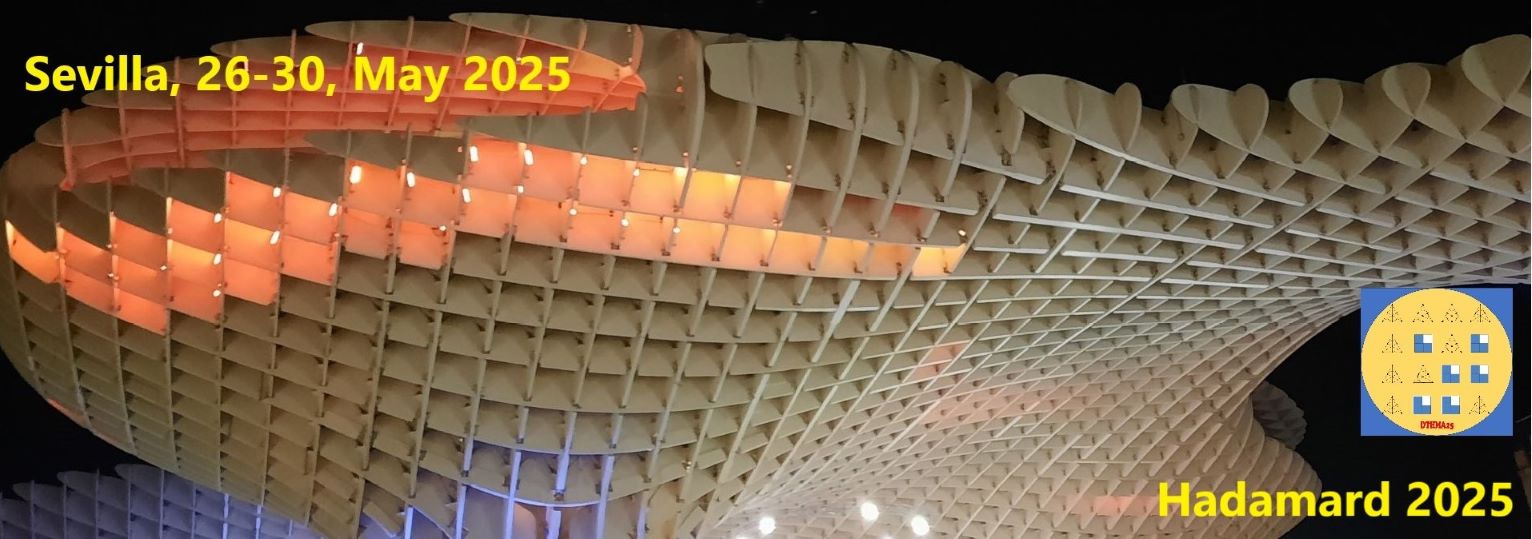



Tiles at an exhibition (not by M. Musorgsky ;-) )
In honor of the 60-th birthday of Dane Flannery (University of Galway, Ireland) and the 65-th birthday of Robert Craigen (University of Manitoba, Canada).
Hadamard 2025 is the eighth in a series of conferences, the previous seven being held at Wollongong, Australia (1993); Seville, Spain (2007); Galway, Ireland (2009); Melbourne, Australia (2011); Lethbridge, Canada (2014); Budapest, Hungary (2017); Krakow, Poland (2022). The 1993 conference, called the “Hadamard Centenary” in recognition of Hadamard’s 1893 paper, was organized by Jennifer Seberry and colleagues.
The purpose of the workshop is to bring together researchers and students interested in design theory, especially as it relates to Hadamard matrices and their applications, as well as in related areas in coding theory, association schemes, sequences, finite geometry, difference sets, quantum information theory, theoretical physics and computer security. The audiences would learn about the latest developments in these areas, discuss the latest findings, take stock of what remains to be done on classical problems and explore different visions for setting the direction for future work.
The main topics include but are not limited to:
Design theory (algebraic and combinatorial).
Quantum information theory.
Coding theory, quantum codes and network codes related to combinatorial structures.
Hadamard matrices and any of their variants/generalizations: Complex Hadamard matrices, Butson-type, GH over groups, Dihedral and Quaternionic Hadamard matrices, weighing matrices, orthogonal designs/arrays, and so on.
Cryptography and related combinatorial structures.
The scientific programme is created by 40 minutes lectures of invited speakers and of 20 minutes contributed talks. So, the talks presented at the conference will also cover other related topics suggested by the participants. The conference will give the opportunity to research faculty and young researchers in discrete mathematics to learn about the latest developments and explore different visions for their future work. The talks will cover both the theoretical and applied aspects of design theory and quanta, and the latter will be particularly beneficial for faculty and young researchers, by giving them the opportunity to learn more about contemporary applications of combinatorics to communications and information security.
Scientific Committee:
Organizing Committee:
Sponsors:
 |
|
||
 |
 |
||